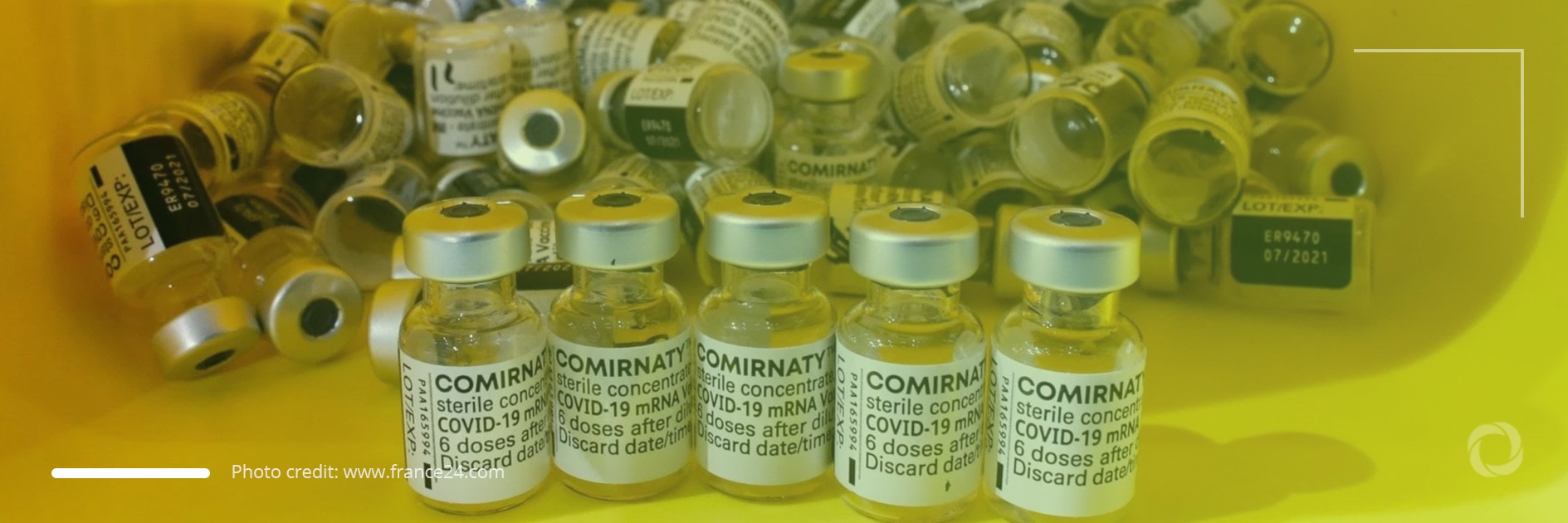Despite refugees being particularly vulnerable to COVID-19, they are still the last in the queue to receive vaccines, Amnesty International has said. Very often refugees live in overcrowded locations where social distancing is not possible. Additionally, they suffer from chronic diseases as a result of the lack of or limited access to healthcare services and this puts them in a group that faces a very high risk of infection, the organization stated.
The majority of the world’s over 26 million refugees live in developing countries that have the most limited access to vaccines globally. Often developing countries do not have enough vaccines for their own citizens so make the decision to prioritize their vaccination thus leaving refugees behind, Amnesty International said. Despite the UN-led COVAX initiative, many poor countries have received only part of the doses needed to vaccinate their entire population. The Global Alliance for Vaccines and Immunization (GAVI) still needs about US$3 billion to increase vaccine supplies.
Even in countries that treat refugees equally in terms of COVID-19 vaccination, the lack of legal status prevents many from registering for vaccination as they do not have identity papers and/or residence permits and this quite often makes them ineligible to receive a vaccine. On the other hand, many avoid registering for vaccination for fear of deportation, Amnesty said.
Poor information campaigns and the lack of access to information sources is another reason for low vaccination rates among refugees. Some of them, despite being aware that they can be vaccinated, are afraid to do so due to the lack of proper information about the vaccines and their effectiveness, Amnesty noted.
Although international law obliges most hosting countries to ensure refugees can access healthcare, including administering vaccines amongst refugees and migrants, there are in fact plenty of factors hampering this process.
Although many hosting countries have included refugees in their national vaccination strategies, some apply different approaches. Both Jordan, which hosts 750,000 refugees, and Rwanda with 138,000 started to vaccinate refugees alongside their own populations from the beginning of the vaccination process. Bangladesh, which is home to 800,000-1 million Rohingya refugees, and Uganda which hosts 1.4 million, announced that they would benefit from vaccination but have not disclosed when. For its part, Colombia, which shelters about 1.7 million Venezuelan refugees and migrants, initially excluded those who were undocumented from its vaccination campaign but in February 2021, it decided to grant temporary protection status to those who had entered the country before January 31, 2021, thus offering access to the healthcare system, including vaccines. Nevertheless, obtaining legal status may take months.
The situation in European hosting countries is not much better. Some EU countries have officially included undocumented migrants in their vaccination strategies, in line with the recommendations of the European Commission. The Netherlands, France, Spain, and Italy announced that they would vaccinate refugees while Germany and Serbia, which is not an EU member state, have given assurances that they would prioritize refugees and asylum seekers in the vaccination process.
Meanwhile, in Greece, asylum seekers and refugees are able to access vaccines but there is no provision for undocumented migrants who Poland has also excluded from its vaccination program. In the UK, where undocumented migrants are eligible for vaccination, the process has become complicated as, in order to be vaccinated, every person has to register with a general practitioner, and to do so they need ID and proof of address, neither of which are available for many undocumented migrants.
The UN Refugee Agency has called for equitable access to COVID-19 vaccinations, including refugees and other forcibly displaced and stateless people. It praised the fact that 153 states had adopted vaccination strategies that included refugees. However, it warned of the inefficiency of unequal access to vaccination.
“The blatant imbalances observed in vaccine-sharing among states are counter-productive and shortsighted. A ‘my country first’ approach just cannot work in a pandemic that knows no borders,” said UN High Commissioner for Refugees, Filippo Grandi.
Provisional data for 2020 shows that there were 80 million forcibly displaced people worldwide as of June 2020, of whom 26.4 million were refugees, another 4.2 million were asylum seekers and 3.6 million were Venezuelans displaced abroad. Syria, Venezuela, Afghanistan, South Sudan, and Myanmar are the main countries of origin. The top hosting countries are Turkey, Colombia, Pakistan, Uganda, and Germany. While 85% of refugees are being hosted in developing countries, 40% of them are children according to data from the UN Refugee Agency showed. It also noted that, so far, about 20 countries have begun inoculating refugees on an equal footing to citizens.

